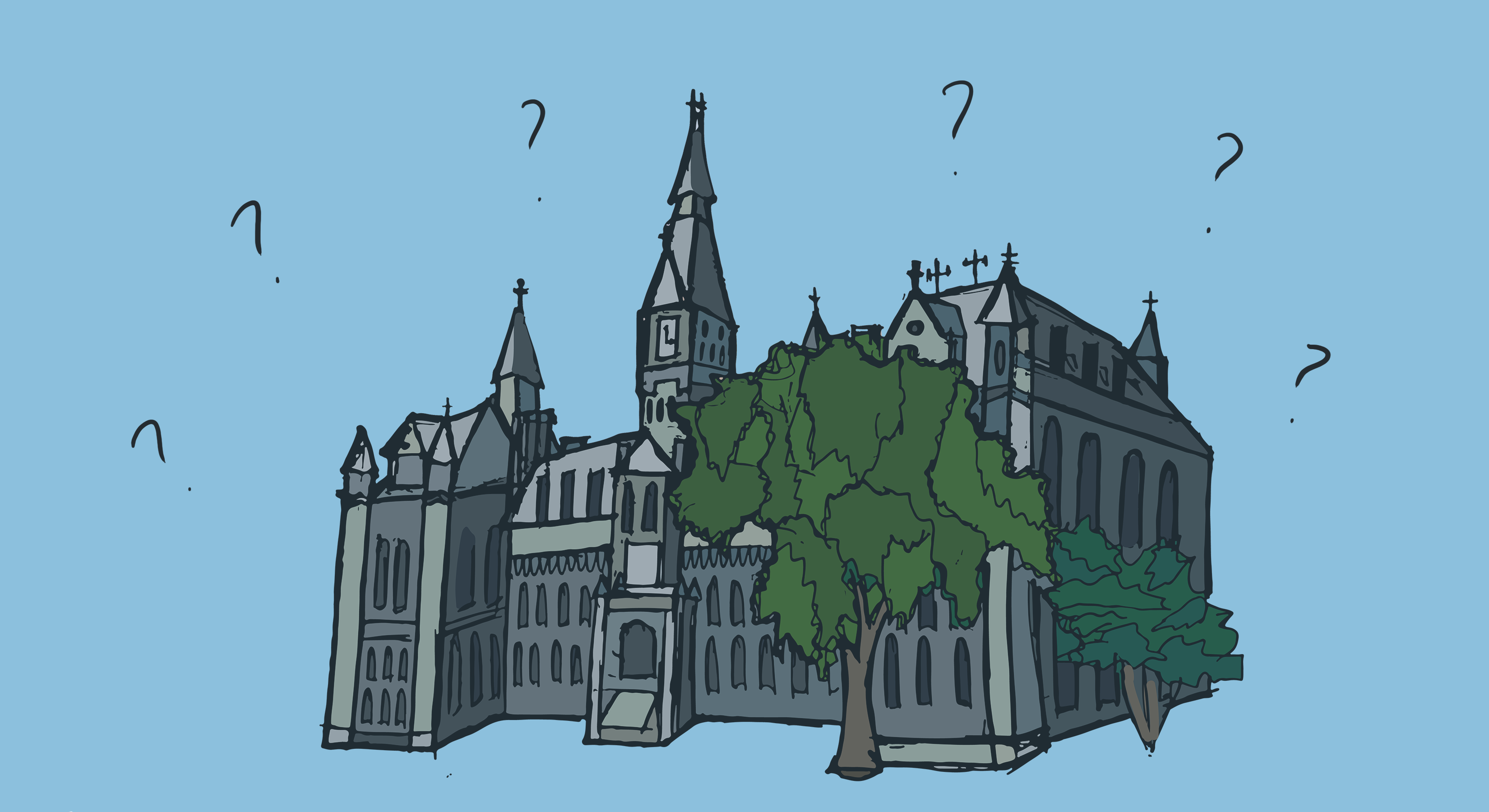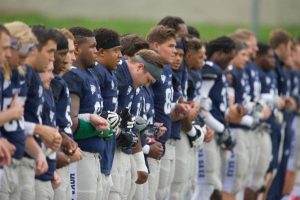I’ve been asked the “What were you doing the week of March 13, 2020?” question so many times now that my response is practically second nature. Still, each time I share my piece of that utterly chaotic moment, it manages to knock the wind out of me all over again: When I received, after two days of anxious dread, the inevitable email informing me that my semester abroad in Madrid had been cut short by a deadly virus, my head was spinning. Of course, like the naive, stupid, American study-abroad students we were, we celebrated the end of the world by embarking on an epic final night of partying, dancing the night away in each other’s arms as we prepared to board our emergency flights home the next morning. How were we to know that night would be the last of any “normal” college nights we’d have? How could we predict the next year would strip us of all we had taken for granted, isolating us from the campus we considered our home for the past three years?
With all that the pandemic has stolen from us, I am certainly among the most fortunate in what I have lost. There is no way I could properly do justice to naming all of the various privileges I have, some of which have become far more acutely apparent to me in this time. My whiteness, financial security, and relatively non-disabled body, among other things, have shielded me (and, with their own privileges, the people closest to me) from many of the most detrimental effects of the coronavirus.
And yet pain has been pervasive in nearly every corner of human existence in the last year. The colossal loss of life, the devastating effects of climate change, and the failures of our government on nearly every level imaginable have left me numb and pessimistic about the future. Coupled with the exacerbated horrors of racism, capitalism, and ableism, the pandemic has taken an incalculable toll on people’s mental well-being. Atop it all has been the abrupt evaporation of so many of the small joys of everyday life—the virtual world just takes and takes and takes.
The pandemic has stolen from us, in the cruelest way possible, what really defines us as human: each other. In order to keep each other safe, we have had to forfeit interpersonal connections in the ways many of us used to take for granted. Grieving the loss of our in-person communities is a process, and for me, the loss of my Georgetown community continues to feel like salt in an open wound each day.
Before the pandemic, the beauty (and, on days when you don’t feel like talking to anyone, the downfall) of walking through Georgetown’s campus at any given moment was that you would encounter at least five people you knew. Now, with the cobblestone corridors empty, save for an abandoned Saxby’s cup or the occasional rat scurrying by, each landmark passed transports me to a romanticized Georgetown of The Before.
There’s the sheer glee of the first week back to school in August, running into everyone you missed over the summer, mosquitoes attacking your ankles as you pass by students tossing frisbees on Copley Lawn. There’s Gaston Hall teeming with Hoyas abuzz with anticipation to see their classmates dance their hearts out at Rangila. Arriving, giggling, with a motley crew of friends to a distant acquaintance’s Tombs night, right as they’re giving their midnight speech. Rushing to snag a table big enough for your group at the 7 p.m. downstairs Leo’s rush. Making awkward eye contact across Lau 2 with that person you hooked up with last year, because, somehow, of course, you see them everywhere you go. Shuffling into Copley Formal to hear some moderately famous guest speaker as just another mundane moment of your Tuesday evening. There’s that singular energy of a really good—I mean really good—seminar discussion, one where you think to yourself, this is why I came to Georgetown. I could go on and on. We each know the parts of Georgetown we are missing.
As my mother says, the natural pattern of human life is that when something bad happens, no matter how challenging it is to get through in the moment, there is always a bit of solace in knowing that eventually, to some extent, time will heal you. A tough breakup or a failed class or a lost job are all difficult pieces of reality to grapple with, but at least (hopefully) your support network, as well as the distraction of daily life, will be there to help you through it. (hitechwork.com)
Now, each dreary day passes with hardly a promise of a return to “normalcy”—only some bleak alternative that may never replace the richness of the life we knew before all of this. All of the usual nostalgia of senior year “lasts” is further amplified because there are hardly any chances to make new memories anymore—just extra hours to ruminate on former versions of ourselves that we left behind long ago. The pain of college ending in a pandemic is harder even still because of the anxious limbo we’ve been in for the past year: There is no sense of closure on your college experience when (as many seniors are) you are living right there. How am I supposed to move on when I know that so many wonderful members of the Georgetown community still reside within a mile radius of campus, but that I may never cross paths with most of them ever again? As I am confronted daily with the physicality of this place, I am haunted by the weight of all that transpired here—these few city blocks have seen some of my highest highs and lowest lows—and hit with the unsettling reality that my business here is not quite yet finished.
And as thoughts of the blurry past and the dystopian present become too much to handle, the future isn’t a great place to focus on either: How can I catapult myself into the next chapter of my story when I have been living in a warped version of the current chapter for what seems like forever? This year especially, post-grad feels more like a jump into an unstructured abyss than an exciting prospect for growth and change. A complete and utter lack of control over your life is never something you want to feel, especially at the ripe age of 22, on the precipice of what might be some of the most seminal years of your life.
I have had countless conversations with friends about what we are going to do on our first night in what seems to be an increasingly abstract “post-pandemic” world. We’re going to hit every club we used to go to, get wasted, (consensually) hug and kiss every person in sight, dance and sing and scream at the top of our lungs, and make new memories instead of reliving the same fading ones from what seems like another lifetime. We will end the night perfectly content in each other’s company, on someone’s living room couch, jumbo slices of pizza in hand, makeup smudged, pajamas on, happy to sleep in till 11 a.m. the next day. Don’t get me wrong—I am beyond ready for that day to come. But I cannot help feeling that if—when—that day does arrive, I will still carry the weight of the fact that all of the joys, big and small, of our last year of Georgetown togetherness will forever be gone. No matter how delightful the post-vaccine future is, I can’t magically transport back to my pre-pandemic undergraduate days.
And yet, the show must go on. Although the vaccine rollout is frustratingly slow and inequitable, its progress does give me a glimmer of hope for a better tomorrow. What matters now are the unique lessons we will take with us as we go forth and set the world on fire (or, rather, spend some time putting existing fires out).
I have faith that the class of 2021, jaded and mournful as we might be, will take the immense wisdom and perspective we have gained in this time and go on to take our shot at shifting the narrative to a better, more equitable, more liberated future. Regardless of how we move forward, as we round the corner to the final weeks before graduation, I send a virtual hug to all of my fellow Hoyas grieving the loss of the liveliness of our pre-pandemic community. No matter the lessons we’ve learned in this time, it will always remain that our senior year was not how it was meant to be.





